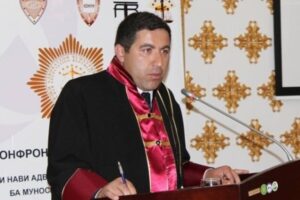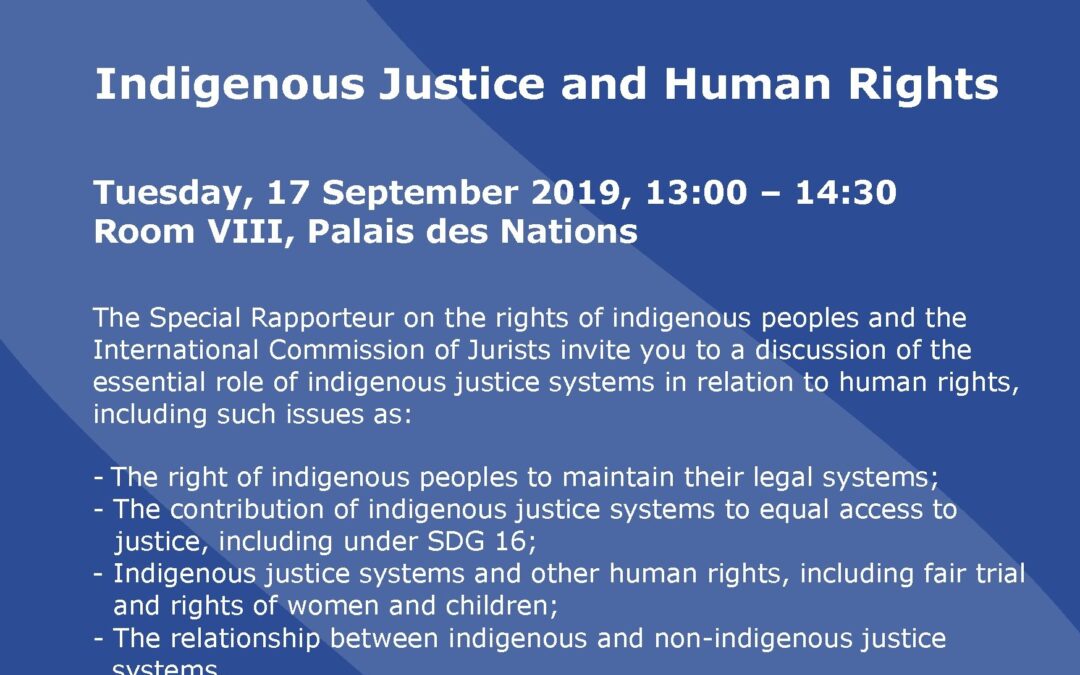
Sep 13, 2019 | Events, News
The ICJ and the UN Special Rapporteur on the rights of indigenous peoples are organizing a panel discussion on indigenous justice and human rights, at the UN Human Rights Council session in Geneva.
The event takes place Tuesday, 17 September 2019, at 13:00 – 14:30, Room VIII, in the Palais des Nations.
The event will discuss, among other aspects:
- The right of indigenous peoples to maintain their legal systems;
- The contribution of indigenous justice systems to equal access to justice, including under SDG 16;
- Indigenous justice systems and other human rights, including fair trial and rights of women and children;
- The relationship between indigenous and non-indigenous justice systems.
The panel will feature:
- Victoria Tauli Corpuz, UN Special Rapporteur on the rights of indigenous peoples.
- Ilaria Bottigliero, IDLO Director of Policy, Research and Learning.
- Jovita Tzul Tzul, indigenous lawyer from Guatemala.
- Matt Pollard, ICJ Senior Legal Adviser.
The event will allow for dynamic exchange between panelists and attendees, on current initiatives including: the Special Rapporteur’s report on indigenous justice systems; ICJ’s global initiative on indigenous and other traditional or customary justice systems; and IDLO’s series of publications titled ‘Navigating Complex Pathways to Justice: Engagement with Customary and Informal Justice Systems’, which aim to advance policy dialogue and distil lessons from programming and research to help realize SDG 16.
Spanish-English interpretation will be available.
A flyer in PDF format can be downloaded here: SideEvent-IndigenousJusticeandHumanRights
For more info contact un(a)icj.org
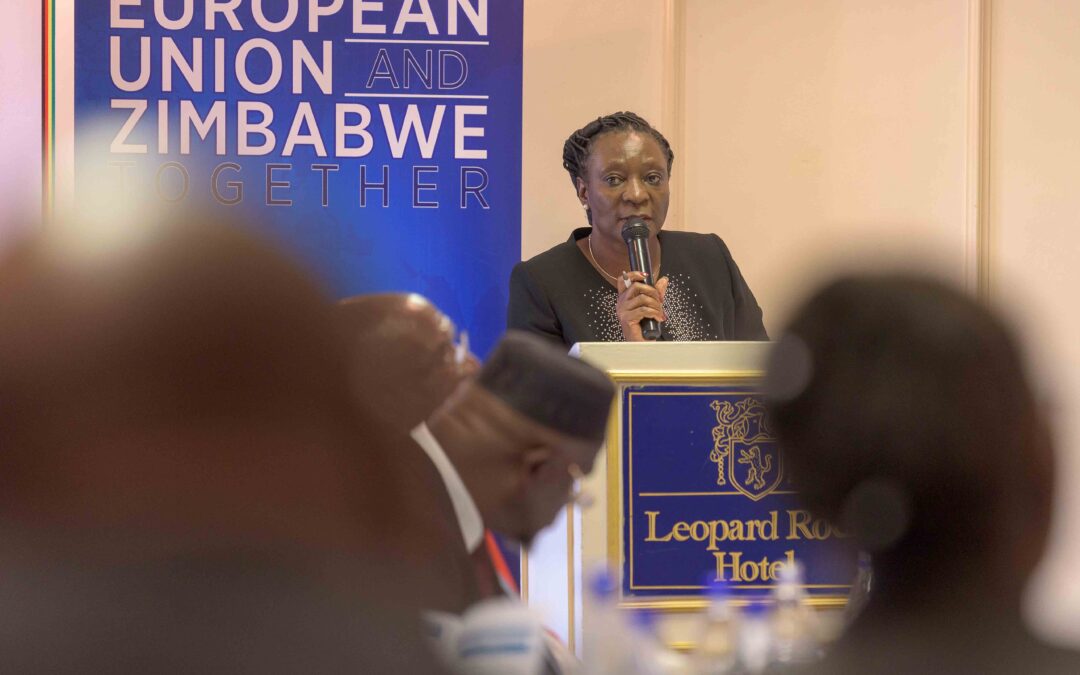
Sep 13, 2019 | News
The ICJ, in collaboration with the Judicial Service Commission (JSC) of the Republic of Zimbabwe, has concluded a two-day Judicial Symposium on the theme ‘Core-Skilling: Towards a Human Rights Jurisprudence’, organized to mark the end of the second judicial term in the Zimbabwe judicial calendar.
In his remarks at the opening of the symposium, ICJ’s Africa Regional Director, Mr Arnold Tsunga, noted that the theme of the symposium had been carefully chosen to enhance discourse on national transformation in an atmosphere of respect for the rule of law and international human rights. He noted further that the symposium was to critique the concept of transformative adjudication and explore its relevance to applying the Constitution of Zimbabwe as an instrument and framework for national transformation.
Noting that the ICJ appreciated its on-going partnership with the JSC in Zimbabwe, Mr Tsunga expressed the hope that the training and symposium would enhance the effectiveness of the judiciary with a view to improving access to justice for all, especially victims of human rights violations, women, marginalized and vulnerable groups and contributing to attainment of the United Nations Sustainable Development Goals number 16 and 5.
On his part, in his opening remarks the Chief Justice of the Republic of Zimbabwe, the Hon. Chief Justice Malaba, noted that the ICJ-JSC organized symposia have provided a platform for continuous improvement of judicial work and networking amongst judges.
Chief Justice Malaba observed that these meetings have enabled judges to dialogue on how to improve the effectiveness and efficiency in the justice delivery system. He noted that this year’s theme on human rights jurisprudence lies at the heart of an independent and effective judiciary.
He further noted that the current Constitution of Zimbabwe has a better framework and potential for the protection of human rights than previous constitutions. Accordingly, he expressed the view that the judiciary has a more important role to play in protecting and safeguarding human rights.
He highlighted that the judiciary’s commitment to the protection of human rights is evidenced in local jurisprudence in respect to human rights cases, where several important judgments have been given by all the courts.
Chief Justice Malaba used the opportunity to give updates on developments which were taking place within the JSC, particularly in its research centre, in the High Court, in the Fiscal and Tax Appeals Division, amendments to the Judicial Laws which were gazetted on the 9th of September 2019.
Chief Justice Malaba stated that in performance appraisal, the JSC has constituted a Performance and Training Committee led by the Deputy Chief Justice to come up with a system that enables accurate measurement of the performance of judges.
Responding to issues of accountability raised by the Chief Justice, ICJ’s Mr Tsunga urged the JSC to develop and adopt a system to track, monitor, document and communicate results arising from these trainings, as the results would help the ICJ, and international development partners to evaluate the usefulness of the trainings and efforts at justice sector reforms.
This year’s symposium was attended by 16 female and 27 male judges from the Constitutional Court, Supreme Court, High Court, Labour Court and Administrative Court of Zimbabwe.
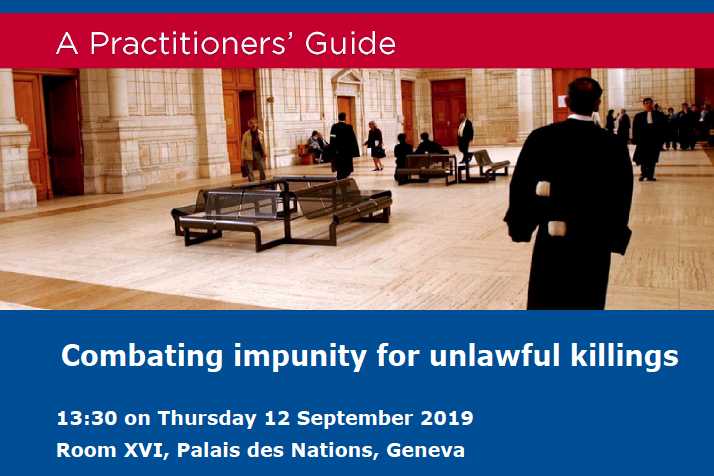
Sep 10, 2019 | Events, News
The ICJ invites you to a discussion of new tools to assist investigation and accountability for extrajudicial, summary or arbitrary executions, and other potentially unlawful deaths. The event takes place on Thursday, 12 September, 13:30, Room XVI, at the Palais des Nations in Geneva.
ICJ’s new Practitioners’ Guide No 14 on the Investigation and Prosecution of Unlawful Death helps legal practitioners ensure that investigation and accountability processes are implemented in accordance with international human rights law.
The Guide elaborates on the revised Minnesota Protocol on the Investigation of Potentially Unlawful Death (2016), a set of practical standards and guidelines that was updated by former UN Special Rapporteur on extrajudicial, summary or arbitrary executions, Christof Heyns, and published by the Office of the United Nations High Commissioner for Human Rights (OHCHR) in 2017.
The panel discussion will highlight key elements of the Protocol and Practitioners Guide, and their relevance to cases such as the 2016 killing of political commentator, Kem Ley, in Cambodia and the 2018 killing of Saudi Journalist, Jamal Khashoggi in Turkey.
Speakers
- Agnes Callamard, Special Rapporteur on extrajudicial, summary or arbitrary executions (by video conference, TBC).
- Stuart Maslen, Honorary Professor, Centre for Human Rights, University of Pretoria.
- Kingsley Abbott, Senior Legal Adviser & Coordinator of the ICJ’s Global Accountability Initiative.
Moderator
- Carolina Villadiego, ICJ Legal and Policy Adviser, Latin America
Printed copies of the ICJ’s Practitioners’ Guide No 14 on the Investigation and Prosecution of Unlawful Death will be available.
A flyer for the event is available here.
*** Room XVI is on the 5th floor of Building A, behind the Assembly Hall, accessible by the elevators at the Salle des Pas Perdus. Details here.
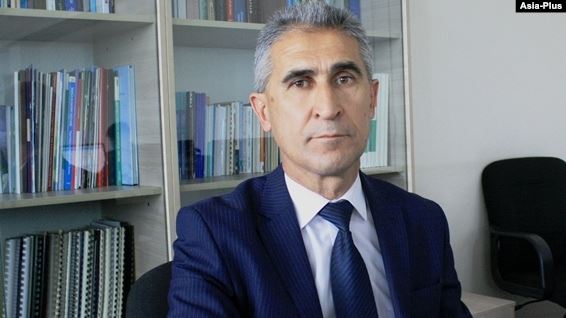
Sep 10, 2019 | Новости, Статьи
Сегодня Международная комиссия юристов (МКЮ) выразила обеспокоенность в связи с актами запугивания в отношении председателя Союза адвокатов Республики Таджикистан Саидбека Нуритдинова и еще 15 адвокатов со стороны государственного ведомства по борьбе с коррупцией.
По всей видимости, оказываемое давление связано с тем, что адвокаты осуществляют защиту Абдулазиза Абдурахмонзода. Дело по обвинению адвоката в мошенничестве рассматривается судом, и имеются сведения о том, что в ходе содержания под стражей он подвергся жестокому обращению со стороны сотрудников Агентства по финансовому контролю и борьбе с коррупцией Республики Таджикистан (Антикоррупционное ведомство).
После того, как адвокаты, осуществляющие защиту Абдурахмонзода, заявили о жестоком обращении, судья Ахмадзода Фарогат из суда района Сино г. Душанбе, которая рассматривает данное дело, обратилась в Генеральную прокуратуру с просьбой провести расследование по указанным жалобам.
После возбуждения проверки по заявлениям на жестокое обращение глава Антикоррупционного ведомства в г. Душанбе предположительно направил запросы в ряд районных судов г. Душанбе, чтобы получить информацию о гражданских и уголовных делах, в которых Саидбек Нуритдинов принимал участие в качестве адвоката. Сообщается о том, что были запрошены такие данные, как имена и адреса клиентов; предмет гражданских дел и сведения об обвинениях, предъявленных подзащитным. Кроме того, МКЮ стало известно о том, что судья Ахмадзода Фарогат по запросу Антикоррупционного ведомства передала последнему список с именами пятнадцати адвокатов, а также копии их ордеров на представление интересов подзащитного.
МКЮ отмечает, что хотя указанные сведения не являются конфиденциальными, ранее подобные проверки, предпринятые Антикоррупционным ведомством, уже привели к уголовному преследованию и осуждению адвокатов.
«В данном случае в дело адвоката, привлеченного к уголовной ответственности, вступили его коллеги, включая руководителя Союза адвокатов, что соответствует профессиональной этике адвоката, – отметил Тимур Шакиров, старший правовой советник МКЮ. – Их участие в деле в качестве защитников соответствует международным стандартам, касающимся роли юристов, а также национальному законодательству Таджикистана».
«Если расследование связано с участием адвокатов в деле Абдурахмонзода, то оно может рассматриваться как средство запугивания адвокатов. В таком случае оно должно быть прекращено, а адвокатам должна быть предоставлена возможность действовать свободно и добросовестно, в соответствии с национальным законодательством и международным правом и стандартами, касающимися роли юристов», – добавил Шакиров.
Общие сведения
17 апреля 2019 года в отношении адвоката Абдулазиза Абдурахмонзода было возбуждено уголовное дело по статье 247 ч.2 Уголовного кодекса (Мошенничество). В ходе судебного процесса, на котором присутствовал наблюдатель от МКЮ, Абдурахмонзода настаивал на своей невиновности и жаловался на нарушения уголовно-процессуального законодательства в ходе предварительного расследования: возбуждение уголовного дела в отсутствие правовых оснований (сообщается о том, что в материалах дела отсутствует заявления потерпевшего о мошеннических действиях, совершенных Абдурахмонзода); нарушение хода предварительного расследования и представление в суд доказательств, полученных заведомо незаконными средствами. МКЮ продолжает наблюдать за судебным процессом по данному делу.
В соответствии с Основными принципами ООН, касающимися роли юристов, правительства должны обеспечить, чтобы юристы «могли выполнять все свои профессиональные обязанности в обстановке, свободной от угроз, препятствий, запугивания или неоправданного вмешательства» и «не подвергались судебному преследованию и судебным, административным, экономическим или другим санкциям за любые действия, совершенные в соответствии с признанными профессиональными обязанностями, нормами и этикой, а также угрозам такого преследования и санкций» (принцип 16).
Кроме того, вмешательство или воспрепятствование деятельности адвоката запрещено Законом Таджикистана «Об адвокатах и адвокатской деятельности». Согласно Закону, адвокат не может быть привлечен к ответственности за какое-либо мнение, выраженное им(ею) в рамках адвокатской деятельности, за исключением действий, которые могут составить преступление. Не допускается истребование у адвокатов или союзов адвокатов сведений, связанных с предоставлением юридической помощи по конкретным делам.
Проект Всеобщей декларации независимости правосудия («Декларация Сингви»), который наделяет ассоциацию адвокатов полномочиями по защите независимости адвокатов, предусматривает, что ассоциация «незамедлительно уведомляется о причинах и правовых основаниях для задержания или заключения под стражу любого члена ассоциации или любого адвоката, практикующего в пределах ее юрисдикции». В таком случае ассоциации адвокатов «имеют право, в лице своего председателя или иного представителя, следить за ходом производства по делу и, в частности, обеспечивать соблюдение профессиональной тайны и независимости профессии».
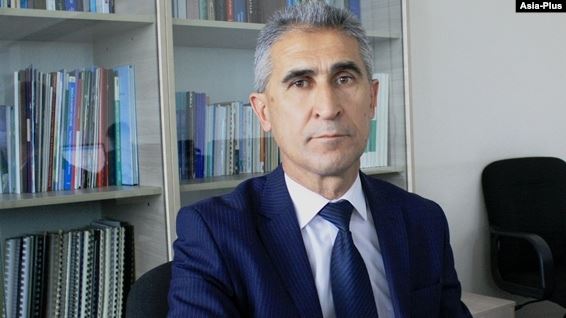
Sep 10, 2019 | News
The ICJ today expressed concern that a Government anti-corruption agency has engaged in acts of intimidation against the Chairperson of the Union of the Lawyers of the Republic of Tajikistan, Saidbek Nuritdinov, and 15 other lawyers.
The intimidation apparently relates to the lawyers’ defence of Abdulaziz Abdurahmonzoda, a lawyer facing trial on charges of fraud, who was allegedly ill-treated in detention by officers of the city Department of the Agency for Financial Control and Combating Corruption of the Republic of Tajikistan (Anti-Corruption Agency).
After the lawyers representing Abdurahmonzoda alleged that he had been ill-treated, the judge of the Sino district of Dushanbe city hearing the case, Ahmadzoda Farogat, requested the Prosecutor General’s Office to investigate the allegations.
Following the initiation of the inquiry of the allegations of ill-treatment, the Head of the Anti-Corruption Agency of Dushanbe, allegedly sent requests to a number of district courts of Dushanbe to obtain information about civil and criminal cases in which Saidbek Nuritdinov had participated as a lawyer.
The requests are said to seek information such as the names and, place of residence of clients: subject matter of civil cases, and details of the charges against his previous clients. In addition, it was reported to the ICJ that Judge Akhmadzoda Farogat, transmitted a list of the fifteen lawyers and copies of their official orders, the documents authorizing the representation of the lawyer, to the Anti-Corruption Agency at its request.
The ICJ notes, that while this information is not confidential per se, previous such investigations of the Anti-corruption Agency have led to criminal prosecution and conviction of lawyers.
“In this case, representation of a lawyer subject to criminal proceedings was undertaken by a group of his colleagues, including the head of the association of lawyers, in line with professional ethics, said Temur Shakirov, Senior Legal Adviser of the ICJ. “Such representation is consistent with international standards on the role of lawyers as well as national law of Tajikistan”.
“If the investigation is related to the lawyers’ representation in the case of Abdurahmonzoda, it would constitute a means of intimidation of the lawyers. And as such it should be ceased, and the lawyers should be able to continue to act freely and diligently in accordance with the national law and international law and standards on the role of lawyers”, Shakirov added.
Background
The criminal case against lawyer Abdulaziz Abdurahmonzoda was initiated under article 247.2, of the Criminal Code (fraud) on 17 April 2019. At the court hearings observed by the ICJ, Abdurahmonzoda insisted on his innocence and alleged breaches of the criminal procedure in course of the preliminary investigation: initiation of a criminal case without legal grounds (the case was said to lack the victim’s statement about the fraudulent actions committed on the part of Abdurahmonzoda); violation of the procedure of the preliminary investigation and submission to the court of evidence knowingly obtained by illegal means. The ICJ is observing the trial.
According to the UN Basic Principles on the Role of Lawyers, governments “shall ensure that lawyers are able to perform all of their professional functions without intimidation, hindrance, harassment or improper interference” and they should not “suffer, or be threatened with, prosecution or administrative, economic or other sanctions for any action taken in accordance with recognized professional duties, standards and ethics.”(Principle 16).
Furthermore, interference or obstruction of lawyer’s activity is prohibited by the Law of the Tajikistan on Lawyers and Lawyers’ Activities. According to the law, a lawyer cannot be held liable for any opinion expressed by him/her as part of his/her lawyers’ activity, with the exception of actions that may constitute a crime. The request from lawyers or lawyer’s unions of information related to the provision of legal assistance in specific cases is not allowed.
According to the Draft Universal Declaration on the Independence of Justice (“Singhvi Declaration”), enable the Bar Association to fulfil its function of preserving the independence of lawyers, they should “be informed immediately of the reason and legal basis for the arrest or detention of any of its members or any lawyer practising within its jurisdiction”. In these cases, bar associations are “ entitled to be represented by its president or nominee to follow the proceedings and in particular to ensure that professional secrecy and independence are safeguarded”.








